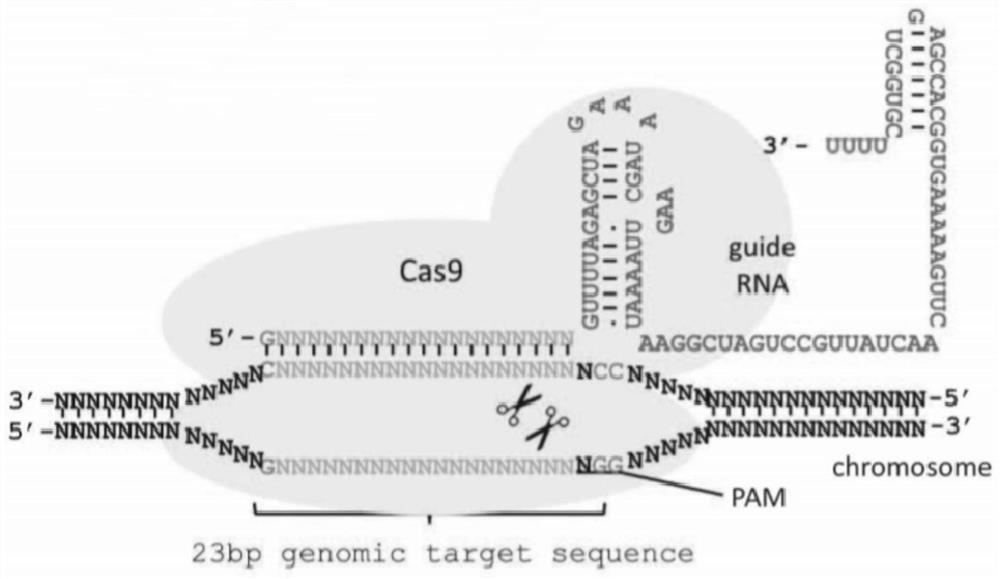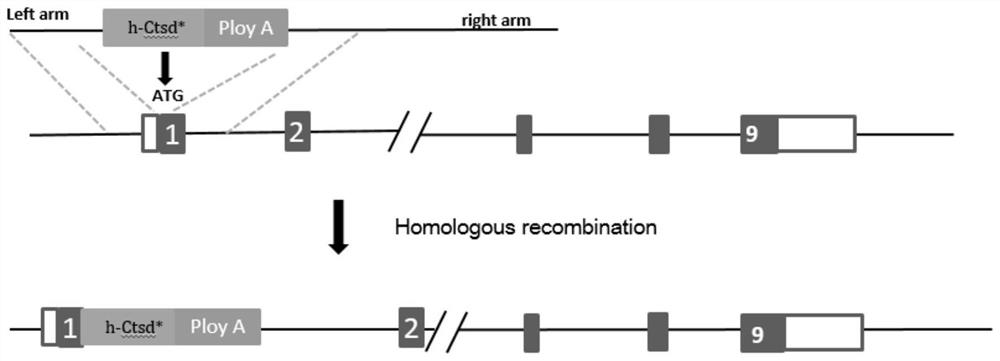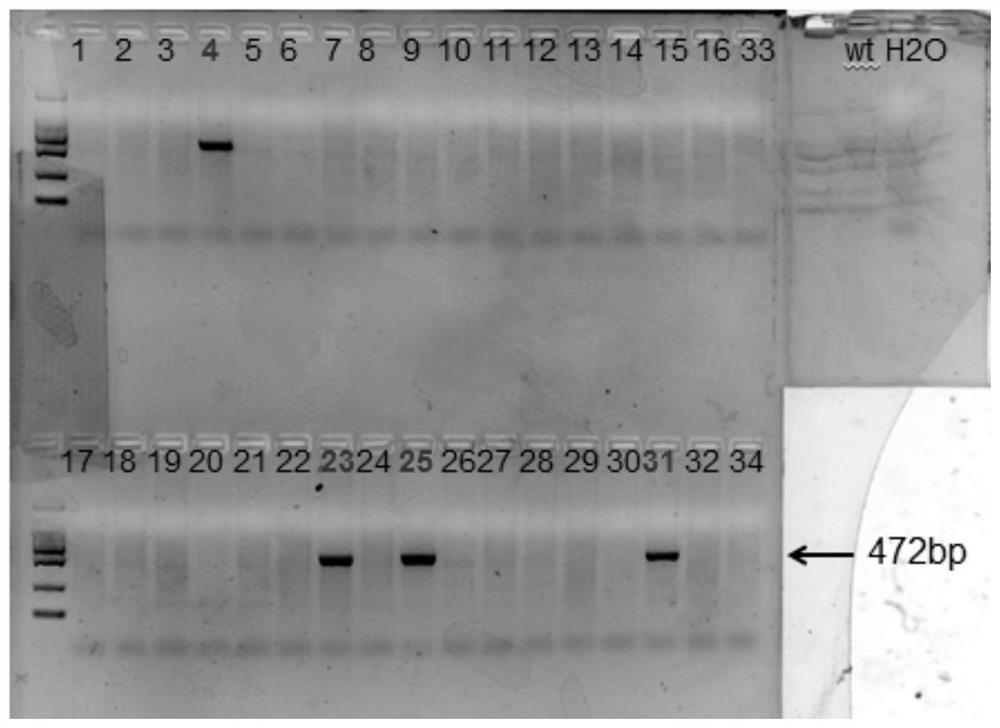Method for preparing retinitis pigmentosa non-human mammal model
A non-human mammal and retinal pigment technology, applied in the fields of molecular biology and biomedicine, can solve the problems of complex pathological background, cognitive decline, and difficulty in screening and research of animals, and achieve the effect of simple pathological background
Active Publication Date: 2021-10-01
SHANGHAI FIRST PEOPLES HOSPITAL
View PDF0 Cites 0 Cited by
- Summary
- Abstract
- Description
- Claims
- Application Information
AI Technical Summary
Problems solved by technology
[0008] It can be seen that although some mutations of CTSD have been reported in the prior art to cause RP, they are often accompanied by a variety of neurological symptoms, such as NCL, ataxia, cognitive decline, etc., and its pathological background Complex, so animals with the above mutations are difficult to use for RP mechanism research or related drug screening research
Method used
the structure of the environmentally friendly knitted fabric provided by the present invention; figure 2 Flow chart of the yarn wrapping machine for environmentally friendly knitted fabrics and storage devices; image 3 Is the parameter map of the yarn covering machine
View moreImage
Smart Image Click on the blue labels to locate them in the text.
Smart ImageViewing Examples
Examples
Experimental program
Comparison scheme
Effect test
Embodiment
[0061] This example provides the construction and identification process of the h-CTSD*-KI mouse model.
[0062] 1. Materials
[0063] The mouse strain used in this example is: C57BL / 6J, and the surrogate mother mouse strain is C57BL / 6J, which was purchased from Shanghai Slack Experimental Animal Co., Ltd., and the mice were randomly divided into a control group and an experimental group.
[0064] 2. Method
the structure of the environmentally friendly knitted fabric provided by the present invention; figure 2 Flow chart of the yarn wrapping machine for environmentally friendly knitted fabrics and storage devices; image 3 Is the parameter map of the yarn covering machine
Login to View More PUM
 Login to View More
Login to View More Abstract
The invention relates to a method for preparing a non-human mammalian model of retinitis pigmentosa. The method comprises replacing the endogenous ctsd gene on one of the homologous chromosomes of the animal with the h-CTSD* gene; the h-CTSD* gene is a human ctsd gene with a c.262dupC site mutation. This application first discovered that the h-CTSD* gene is related to RP, and established a mouse animal model in which the h-CTSD* gene was knocked in. The invention provides a convenient, reliable and economical means for studying the relationship between CTSD mutation and retinitis pigmentosa and its pathogenic mechanism, and provides a reliable theoretical basis for the research. More importantly, the animal does not show symptoms of neurological diseases such as spasms, neuronal ceroid lipofuscin deposition, ataxia, etc., except for RP, and the pathological background is simpler, which is very suitable for the construction of RP animal models .
Description
technical field [0001] The invention relates to the technical fields of molecular biology and biomedicine, in particular to a method for preparing a non-human mammalian model of retinitis pigmentosa. Background technique [0002] CRISPR / Cas9 technology is a new gene editing technology developed in recent years. It is developed from the adaptive immune defense formed by archaea and bacteria under long-term selective pressure, which can effectively resist the invasion of foreign DNA. The immune system consists of three components: Cas9 protein, CRISPR RNAs (crRNAs) and trans-activating crRNAs (tracrRNA). In the process of immune defense, guide crRNA guides Cas9 protein to target foreign genes and cut them. Accordingly, people have modified crRNA-tracrRNA in vitro to obtain a sgRNA that can recognize the NGG PAM (protosp aceradjacentmotif) sequence and the target gene. At the same time, it can bind to the Cas9 protein and guide it to cut at 3 to 8 bp upstream of the PAM to form...
Claims
the structure of the environmentally friendly knitted fabric provided by the present invention; figure 2 Flow chart of the yarn wrapping machine for environmentally friendly knitted fabrics and storage devices; image 3 Is the parameter map of the yarn covering machine
Login to View More Application Information
Patent Timeline
 Login to View More
Login to View More Patent Type & Authority Patents(China)
IPC IPC(8): C12N15/113C12N15/89C12N15/90A61D19/04A01K67/027
CPCA01K67/0276A01K67/0278A01K2207/15A01K2217/072A01K2217/075A01K2227/105A01K2267/0306A61D19/04C12N15/113C12N15/89C12N15/907C12N2310/20
Inventor 万晓玲孙晓东
Owner SHANGHAI FIRST PEOPLES HOSPITAL
Features
- R&D
- Intellectual Property
- Life Sciences
- Materials
- Tech Scout
Why Patsnap Eureka
- Unparalleled Data Quality
- Higher Quality Content
- 60% Fewer Hallucinations
Social media
Patsnap Eureka Blog
Learn More Browse by: Latest US Patents, China's latest patents, Technical Efficacy Thesaurus, Application Domain, Technology Topic, Popular Technical Reports.
© 2025 PatSnap. All rights reserved.Legal|Privacy policy|Modern Slavery Act Transparency Statement|Sitemap|About US| Contact US: help@patsnap.com



